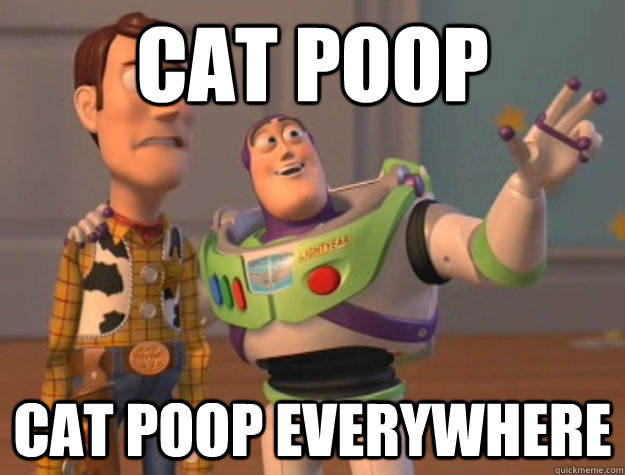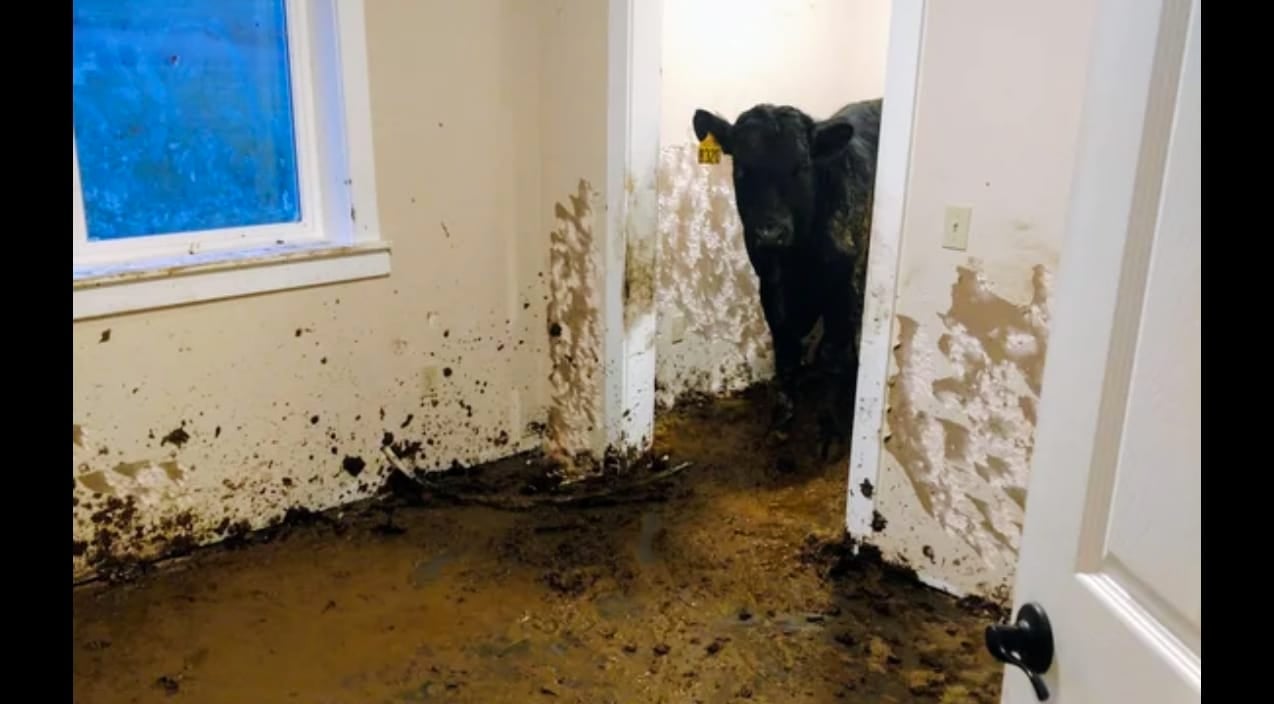All cat names have been changed to protect the guilty little poopers' identities and privacy.

Over Thanksgiving I had four cat clients whose care presented litterbox challenges. I thought an insight on how I work with them might be interesting for you. Here's our kitties:
Sammie is a 13 year old spayed female. She takes daily blood pressure medication that causes constipation, so she also gets a mild laxative powder in her food. She has two litterboxes she uses consistently for peeing, and she poops on the linoleum floor about a foot outside the box.
Jerry is a 6 year old neutered male. Like Sammie, he has two litterboxes available. He pees in the boxes and poops on the floor nearby.
King Leo is a 17 year old neutered male in excellent health. He has one large litterbox he uses consistently, but often pees over the edge.
Carlos is a 19 year old neutered male. He takes blood thinners and has a slight limp due to a recent blood clot in his thigh. He has four litterboxes that he uses occasionally, but he prefers to pee and poop just about anywhere on the cement basement floor.
Disclaimer: Sometimes a cat will change their bathroom habits when they are sick. It's a good idea to have a vet check your kitty if they are having litterbox issues. My four example cats (with the exception of Sammie, who is a pretty pretty princess whose medication regimen sometimes affects her bathroom habits) are healthy and have no medical excuse for their sinful ways.
The first thing I look at when a cat "thinks outside the box" is cleanliness. No one wants to use a toilet that is dirty or smells bad. I scoop out all the clumps and solids, and clean any messes around the box.
If it's a hard surface like tile or linoleum, I prefer to use bleach. It kills germs and odor and it's cheap. One of my clients told me about using rubbing alcohol to use on rugs or carpets, and I find it works just fine. It also kills germs and odor and is cheap, it evaporates and dries quickly, and it won't discolor the fibers. (Test it in a hidden area first, to make sure.) There are also special enzyme cleaners available in stores, and I've used them with good results.
Getting rid of all traces and smells is imperative. Any lingering residue or odor signals the cat that this is a place where it's okay to go. Scented air fresheners will do nothing; the spot must be scrubbed and sanitized!
Once the area is clean, then I look at the location and position of the box. Does the cat feel exposed? Their animal brains may be domesticated, but their feral instincts still worry about being ambushed. Make sure the cat has little privacy and they feel secure. A place that doesn't get much traffic like the laundry room or a spare bathroom is good. Place the box near a wall or corner for an added feeling of security.
Okay, cats. Your litterboxes are clean and cozy. Let's see how you react.
King Leo promptly steps in and pees over the edge onto the carpet. Well, this is surprising, especially since I was standing right there watching him, and he was looking at me. His nonchalance leads me to believe that he had no idea anything was amiss. He had all four feet in the box and thought he was being a proper gentleman. My recommendation: get a box with taller sides. He's an old cat but he's in great shape, often jumping onto the kitchen counter, so he won't have any trouble jumping over the sides of a tall box, and the taller sides will keep everything inside the box. No more "splash zone"!
Sammie makes no change to her habits; pees in the box, poops on the floor nearby. I wonder if she's trying to communicate that she doesn't feel well? I clean the floor, put down an absorbent puppy pad, and text the owner with my observations.
Jerry continues to use the box for peeing, and moves his pooping place to the carpeted stairway that leads to the room downstairs where his food dishes and litterbox are. I think he's upset that I cleaned up that room, destroying his scent marking, and he's trying to make his territorial boundaries clear: This is my space. No intruders allowed. Stay away!
I clean up the droppings and put some in his litterbox, to help him get the idea. I think he's only marking territory like this because he doesn't know me that well. I'll have a discussion with the owners when they get home about what to do if he continues. There are two small boys in the household and it may be that the cat wants more space and alone time than he's getting.
Carlos is a challenge. He's old and used to doing things his own way. I cleaned and deodorized the main area of the basement where he had been soiling, then blocked it off so he couldn't reach it. I moved the boxes to a different spot nearby hoping that he would use them based on scent. And he sort of did. Then he just found a new area of the basement to whiz all over.
Because I am only hired to clean the litterboxes once a week, it's difficult to tell what the problem is. It may be that he is fussy, and once a box has been used a time or two, he won't use it. Or it may be that he doesn't like the litter. The particular brand his owner uses isn't great at controlling odor, and it may be that he doesn't like the smell.
I clean and deodorize the new place he's found to soil, and block it off so he can't get to it. The same thing has happened when I come the following week: slightly used litter, freshly soiled area of the basement.
Next week I will be assuming daily care of Carlos for a few weeks, and that is when I can really pinpoint what is going on. I'm going to deep clean his litterboxes, try some different litter brands in two of them, and minimize the space available to him in the basement.
Doing this much work isn't really part of my service, but the situation is so advanced that I consider it a health and safety hazard and I must do something in order to continue to provide good care. When the owner returns, I will have a meeting with her to discuss what I've done and to make a plan for going forward.
In closing, most cats are litterbox champs and don't cause a bit of trouble. If there is a problem (and the vet has ruled out medical causes), careful clean-up and some simple changes can often get your cat on the right track. I am happy to help, of course!
And hey, at least you don't have cows.

No comments:
Post a Comment